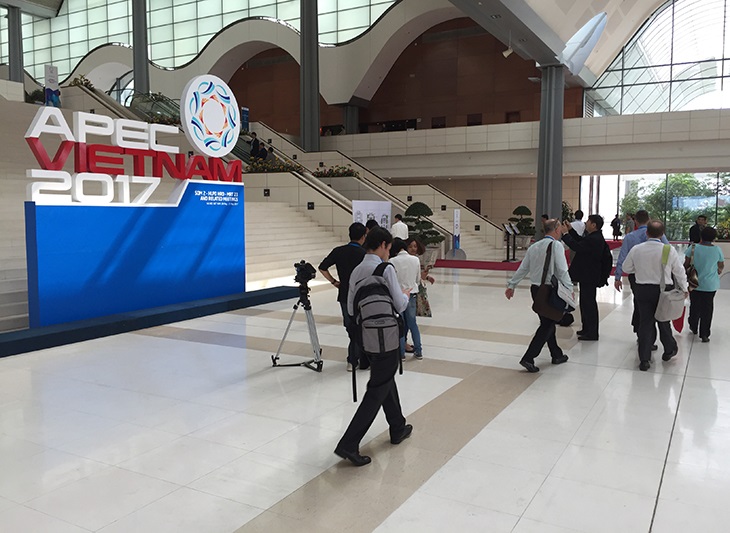Ministers to Seek Clarity on Trade in Ha Noi

Trade Ministers and officials from the 21 APEC member economies have begun convening in Ha Noi to alleviate uncertainty about the future of trade in the Asia-Pacific and its capacity to boost employment and living standards for all people across the region.
The APEC Ministers Responsible for Trade Meeting on 20-21 May will cap off a pivotal set of policy development meetings here over the next 10 days to decide the next steps for trade amid rising skepticism about the benefits of globalization and rapid social and technological change.
Chaired by Viet Nam Trade and Industry Minister Tran Tuan Anh, the proceedings will build on initiatives introduced during technical exchanges between trade and sectoral officials to confront these challenges and fleshed out by APEC Senior Officials on 17-18 May. This work will be shaped by new trade and growth projections for the APEC region, which accounts for half of global trade, to be unveiled on 17 May.
Pacific Alliance, Regional Comprehensive Economic Partnership and Trans Pacific Partnership ministerial meetings are expected to be held on the margins of the APEC Ministers Responsible for Trade Meeting in Ha Noi.
“Momentum on market integration and trade is being tested in ways we have not seen since these forces transformed the Asia-Pacific into the engine of the world economy,” said Dr Alan Bollard, Executive Director of the APEC Secretariat. “The shifting landscape is both a cause for consternation and an opportunity to work out and align new policy approaches to globalization that could result in improved economic and social outcomes.”
“Populist pressure to move towards protectionism threatens to raise prices for businesses and consumers, reduce product and service choice, and slow down trade-driven growth in the region,” Dr Bollard explained. “By the same token, it is also prompting greater coordinated action to address concerns over market competition, worker dislocation and mounting inequality as the accumulation of wealth increases within economies.”
Ministers and officials will focus on establishing freer Asia-Pacific trade that secures the advantages of globalization while safeguarding the welfare of people hurt by it. This includes new collaborative efforts to facilitate high demand industries such as digital innovation, environmental services and food production, and address trade restricting measures that undermine their development and job creating potential.
Bolstering trade participation among small firms which account for the majority of employment but a disproportionately small share of exports in the region, women’s entrepreneurship, and worker employability will be complementary points of emphasis. An APEC High-Level Policy Dialogue on Human Resources Development in the Digital Age on 14-16 May, in particular, will build support for education and skills training compatible with the changing needs of employers.
“Innovation will continue to disrupt traditional business models and sectors, compounding demographic and labor issues that are transforming the economic calculus and fueling anxiety around the Asia-Pacific,” noted Dr Bollard. “These transition forces, if effectively harnessed, could also make globalization work better.”
“Opening up services sector development, small business participation in international markets that it enables and workforces equipped to take advantage are key to realizing what we ultimately all want in the region—trade that supports better lives for our people,” Dr Bollard concluded. “The challenge will be to find common ground on tackling this spectrum of complicated issues and to move forward in ways that everyone can live with.”
# # #
For further details, or to arrange possible media interviews, please contact:
David Hendrickson +65 9137 3886 (in Ha Noi) at [email protected]
Michael Chapnick +65 9647 4847 at [email protected]
More on APEC meetings, events, projects and publications can be found on www.apec.org. You can also follow APEC on Twitter and join us on Facebook and LinkedIn.

